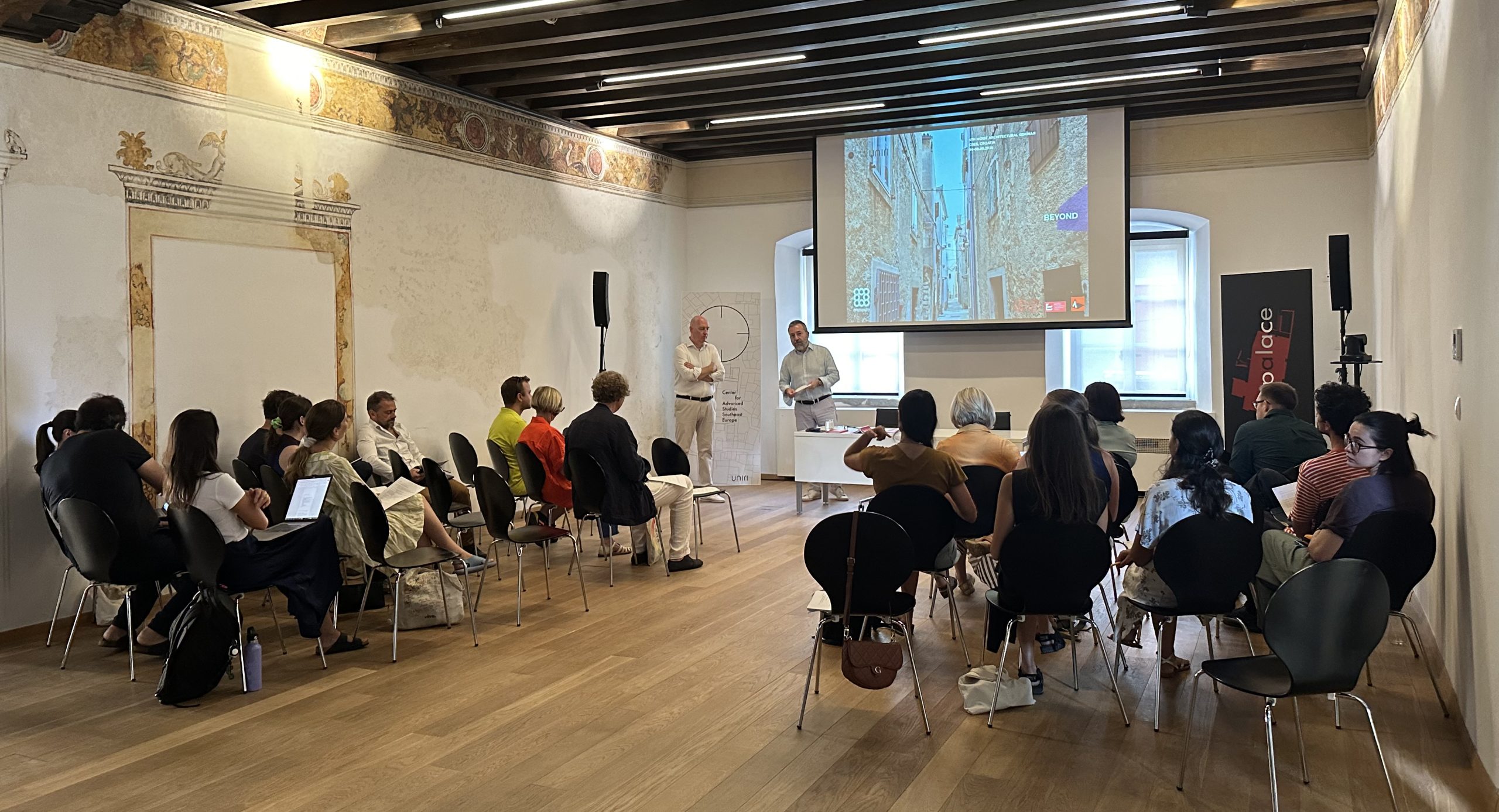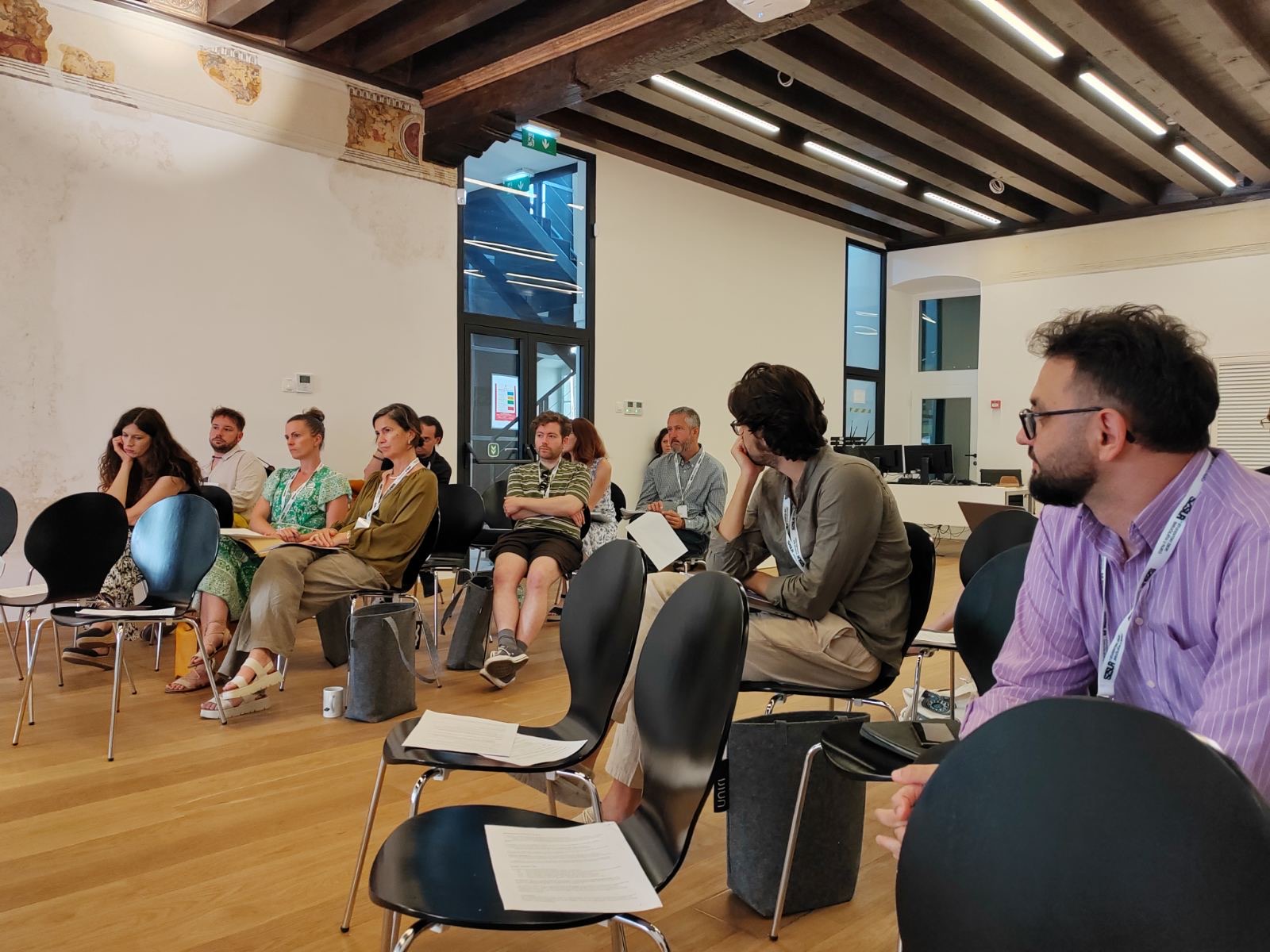Digital Democracy Summer School 2022
Home- Digital Democracy Summer School 2022
The power of platforms and the power of the people
11. – 13. 5. 2022.
Center for Advanced Studies – South East Europe, University of Rijeka
Keynote speakers:
Paolo Gerbaudo (King's College London)
Walter Quattrociocchi (Sapienza University of Rome)
Michele Sorice (LUISS University of Rome)
Mislav Žitko (University of Zagreb)
The first phase of the Internet was characterized by a "horizontal" and "anarchic" situation: everyone
could post ideas on websites and blogs, everyone could surf without filters. Websites, forums and
blogs produced a continuous flow of communication, and the old mass media intermediaries seemed
to be overcome. The second phase of the Internet, which we are currently experiencing, is
characterized by a "vertical" environment. A few platforms (the GAFAM – Google, Amazon, Facebook,
Apple, Microsoft) host, filter, intermediate and govern the communications of billions of individual
users. These platforms, however, appear to have serious design flaws. Data commodification for
purposes of algorithmic personalization invite significant ethical, political and epistemological
questions. They appear to incentivize polarization, gamify public discourse and amplify far-right
content and fake news. On the other hand, regulating their content is no easy task, and at times leads
to silencing of the debate or legitimate political activism. Another way to meet the challenges of digital
democracy has been by designing new civic and party participation platforms – however, the research
is required to assess whether they succeed in realizing the ideals of involving citizens or party
activists in reliable deliberation, or is their impact insufficient?
The current crisis of democracy will not be overcome by a return to old institutional designs and
traditional public spheres, but by designing and developing systemic upgrades. This Summer School
intends to explore the risks and potentials of web politics, investigating how the viability of democratic
ideals (freedom, autonomy, pluralism, truth, participation, etc.) can change in the digital media
ecosystem, and how can we build decision-making environments and institutions capable of
defending and promoting the power, autonomy and knowledge of the citizens in our democracies.
Academic Board
Mauro Barberis, University of Trieste, Italy
Petar Bojanić, University of Rijeka, Croatia, and IFDT University of Belgrade, Serbia
Sanja Bojanić, University of Rijeka, Croatia
Paolo Coppola, University of Udine, Italy
Snježana Prijić-Samaržija, University of Rijeka, Croatia
Luca Taddio, University of Udine, Italy
Gazela Pudar Draško, IFDT University of Belgrade, Serbia
Organisation Board
Gabriele Giacomini, University of Udine, Italy
Marko-Luka Zubčić, University of Rijeka, Croatia
You can find the program here:
Digital Democracy Summer School 22 – program
Summer School will take place at the following link:
https://us02web.zoom.us/j/86882011793?pwd=YzZFMkNxd0tzSklTNDl1d0wrNXYrQT09
Meeting ID: 868 8201 1793
Passcode: 602686
Watch Video
UNIRI The Moise Palace: Cres Island
An education center of the University of Rijeka is five-hundred-year-old patrician townhouse and the largest Renaissance palace on the Croatian islands. A venue and forum for various scientific and research activities, it welcomes visiting academics, students
News
CAS SEE latest posts
05 May 2022 CAS SEE Seminars with Guests: Dannica Fleuß CAS SEE Seminars with Guests: Dannica Fleuß Home CAS SEE Seminars with Guests: Dannica Fleuß Dr. Dannica… Read More
06 May 2022 5th Summer School "The Project of Theory" 5th Summer School "The Project of Theory" Home 5th Summer School "The Project of Theory" Venue: Moise… Read More
09 May 2022 International Scientific Conference: 580th Anniversary of the Cres-Osor Statute International Scientific Conference: 580th Anniversary of the Cres-Osor Statute Home International Scientific… Read More





